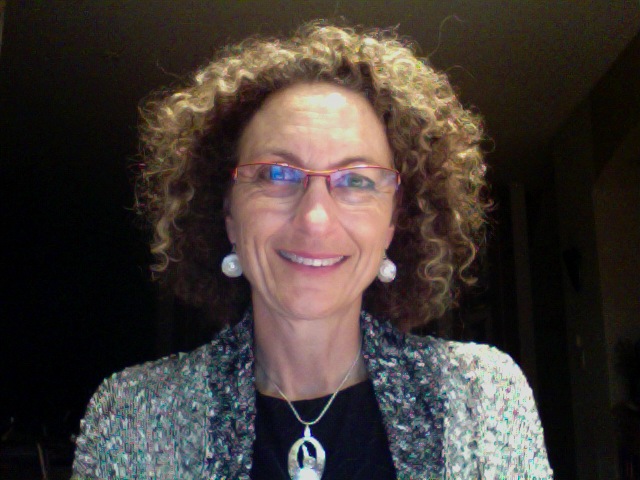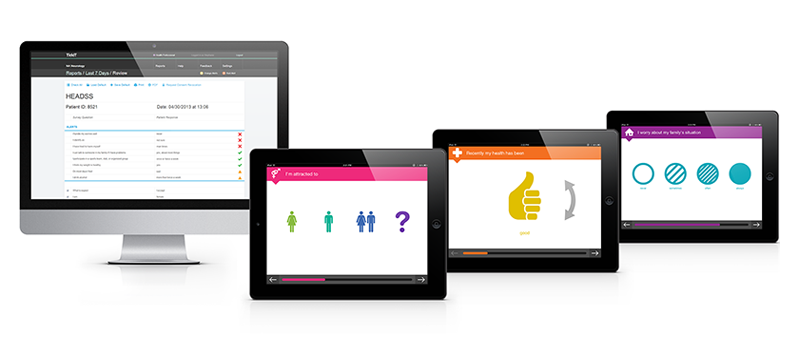Kids these days are sophisticated “technology natives.” Tickit Health (formerly known as Shift Health) knows this, and is leveraging youth’s comfort with technology to create a youth-friendly interactive psychosocial screening tool.
The TickiT platform is improving patient outcomes and satisfaction by getting to the heart of their story. Even before seeing a clinician and focusing on the reason for a visit, this secure digital platform is increasing engagement and delivering a more accurate portrait of the patient.
Tickit Health was founded by Dr. Sandy Whitehouse, who has been a specialist physician for the past 25 years. She was the Medical Director of the ER at BC Children’s Hospital, and now teaches as a clinical associate professor at the University of British Columbia. The team in located in Toronto and works closely with health professionals around the world.
For Whitehouse, this business is the culmination of a lifelong interest in young people that came together by specializing in both emergency and adolescent medicine. “They are actually both quite similar, being chaotic and often seeing a patient arrive with a complaint, discomfort, or injury that turns out to really be something else,” she told BetaKit
She often found herself dealing with disengaged patients. “They come into the emergency setting unprepared. With young people they can appear to think they’re sophisticated, when in fact they are really just learning about their bodies and their health, and even more so learning about the healthcare system itself.”
An interesting part of Whitehouse’s story, and entrepreneurial journey comes from her decision to take a break from medicine and do a Masters of Liberal Studies at SFU from 2006 to 2010. This experience shaped a more patient-centric worldview. She said “medicine is very good with treating physiological problems, the science is quite good, but there’s a great failing when it comes to communications.”
The language of medicine and healthcare is itself foreign. It’s a huge challenge to navigate the system for many people. The fact that key questions can go unanswered because they’ve been lost in translation shouldn’t be a surprise.
Seeing the iPad’s potential as an enabling clinical tool and appreciating the digital prowess of today’s adolescent, Whitehouse spent a year working out the first questionnaire for the platform as part of a design project.
She noted “when you want to engage young people and provide good healthcare, you need a holistic approach. Lifestyle issues can account for up to 50 percent of health outcomes, so it’s important understanding if risky behaviour are involved. There’s a way of interviewing young people called HEADSS (Home, Education, Activities, Drugs, Sex & Suicide), and it’s format is designed to move from less threatening topics to the most sensitive.”
The core premise behind creating TickiT was to save clinicians the time (about 20 minutes) of doing the questionnaire, and to make young people feel more comfortable answering these sensitive questions. Most kids aren’t very forthcoming if the person asking the questions reminds them of a parent. However, most of them are comfortable with an iPad in hand, and answering questions in a language they can understand.
The aim for Whitehouse has always been about improving the patient experience. Tickit Health is helping clinicians achieve this by offering both stock and custom surveys. TickiT has a library of validated surveys written by other health professionals, and allows for simple sign up and an easy way to start collecting valuable patient data. They can also build fully interactive custom surveys. The team specializes in editing for low/wide literacy rates and patient friendly prose.
Tickit Health currently has clients in Canada, the US and Australia, including –
- BC Children’s Hospital
- Children’s Aid Toronto
- McMaster Hospital for Children
- Toronto Hospital for Sick Children
- University of British Columbia
- Brown University
- Boston Children’s Hospital
- Seattle Children’s Hospital
They have recently started working with the Patient Safety Council of BC, highlighting new opportunities for this platform beyond the youth healthcare space. A big reason behind the platforms early success according to Whitehouse has been “our decision to start with a design first approach over development. As well, while there’s been growing talk about patient centred care and the patient experience, we’re actually enabling people to walk the walk, rather than just talk the talk.”




